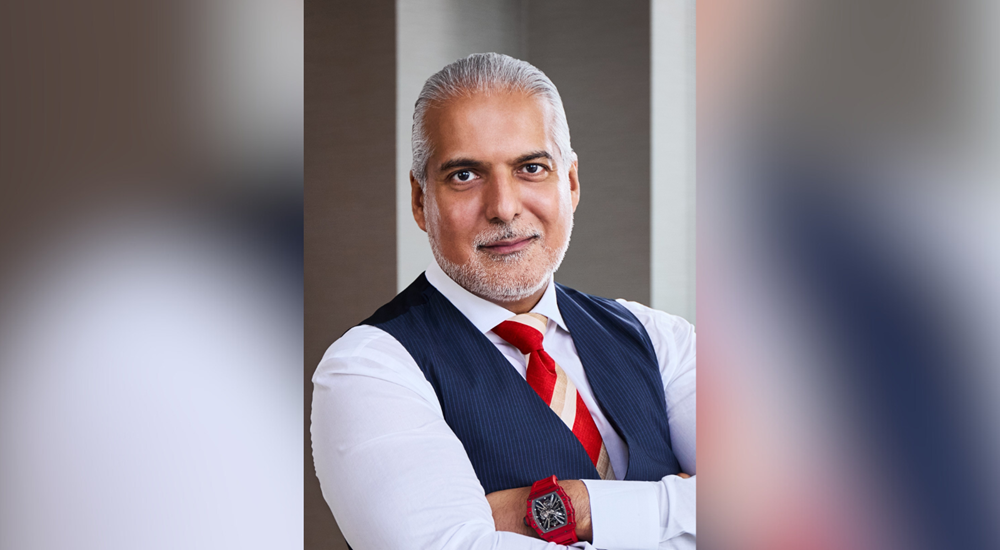Arif Bhalwani is the Co-Founder and CEO of Third Eye Capital (TEC), one of Canada’s largest private credit firms, deploying over $5 billion in investments in industries like energy, technology, mining, healthcare, and transportation. They have realized over $2.6 billion from more than 100 investments in the last twenty years. Before founding TEC, Bhalwani successfully built and exited ventures in the retail automotive and computer services industries and played a key role in the turnaround and sale of a major Canadian construction firm. His deep experience in investment and business restructuring led him to establish Pinnacle Capital, the Canadian arm of a California-based venture capital firm, where he specialized in early-stage business investments across various sectors. These experiences equipped him with a sharpened ability to identify untapped value in businesses, a skill that has become central to TEC’s investment philosophy.
In this interview, Bhalwani discusses the evolving role of private credit in Canada, TEC’s unique approach to lending, and how strategic partnerships help businesses navigate financial challenges and unlock long-term value.
____________
Q: Private credit in Canada has grown significantly due to tightening bank regulations and high interest rates. How has this shift impacted the way Third Eye Capital operates?
ARIF BHALWANI: The increasing reticence from the Big 6 Canadian banks to lend to businesses facing challenges has only reinforced the critical need for alternative financing solutions in our economy. At Third Eye Capital, we’ve long specialized in filling this gap, but the demand for our services has grown exponentially in recent years. What differentiates us is our ability to provide bespoke financing solutions tailored to the specific circumstances of each business. This enables companies to continue operating, pursue growth, or execute turnarounds that would otherwise be impossible under conventional lending models. We don’t just provide capital—we partner with businesses to unlock hidden value that traditional lenders might overlook. The shift in the market has validated our strategy and widened our opportunity set, but our core focus remains the same: solving complexity, protecting capital, and creating transformational outcomes for the businesses we back.
Q: How does your approach to credit differ from that of the traditional banking sector?
ARIF BHALWANI: Our approach is fundamentally different—both in mindset and execution. Traditional banks focus on compliance, standardization, and historical financial performance. Their lending models are rigid, rule-based, and often unable to accommodate complexity or volatility. At Third Eye Capital, we do the opposite: we lean into complexity and see opportunity where others see risk.
We underwrite based on a deep understanding of the underlying business, its assets, and its potential. We’re asset-oriented, and our loans are individually structured, often in situations where timing, creativity, and control matter more than the cost of capital.
Unlike banks, we don’t just lend and monitor from a distance. We get involved. We sit down with management, understand their pain points, and design solutions that work in real time. We also take a rigorous view of downside protection. Every investment starts with the question: how do we get our money out, even if things go wrong?
This active, engaged, and highly customized approach is what allows us to generate strong returns while solving real business problems that banks aren’t equipped to address.
Q: Can you provide an example of a company Third Eye Capital has helped navigate a financial crisis?
ARIF BHALWANI: A strong example is a publicly traded digital media and technology company that encountered severe liquidity challenges due to industry shifts and a legacy capital structure that no longer supported its growth.
When equity markets pulled back and traditional lenders stayed away, we stepped in with a customized financing solution that stabilized the business and gave it the runway to execute a turnaround. But our role went well beyond capital – we worked closely with the founder-led management team to strengthen financial controls, enhance reporting, and refocus the business on its most profitable segments.
Our capital and partnership enabled the company to go private, which freed it from the burdens of being public and allowed it to implement strategic changes more decisively. As a result, the company recently delivered one of its best years ever, both operationally and financially.
This is exactly where Third Eye Capital thrives: stepping into complexity, partnering with leadership, and unlocking value where others only see risk. It’s a powerful example of how we turn crisis into opportunity – not just for ourselves, but for the businesses and people we back.
Q: Beyond lending, how does Third Eye Capital actively engage with the companies it finances?
ARIF BHALWANI: We view ourselves as partners, not just lenders. When we invest, we bring more than capital – we bring insight, discipline, and a toolkit for creating value in complex situations. Our team includes sector specialists who work directly with companies to address operational inefficiencies, maximize asset potential, and implement best practices for long-term success. In many cases, we help professionalize operations, improve financial reporting, or recruit experienced talent to support execution. We also leverage our network, industry experience, and real-time access to data to support strategic decisions. And where needed, we’ll appoint directors or operational advisors to strengthen governance and accountability.
Q: Given the rising insolvency rates in Canada, how do you see the role of private credit evolving in the near future?
ARIF BHALWANI: The surge in business insolvencies and the increase in large debtor restructurings indicate the need for innovative financing solutions. Many companies that took on debt during the low-rate period are now struggling with refinancing at higher costs. As these pressures mount, private credit will play an even more critical role in bridging the gap between traditional financing and the operational realities of Canadian businesses. We see private credit evolving from being an alternative to becoming a foundational part of the capital stack, especially for companies navigating distress, transformation, or non-linear growth. Lenders like Third Eye Capital, who can underwrite complexity, move quickly, and structure for downside protection are going to be essential not just in rescuing businesses, but in repositioning them for long-term viability.






